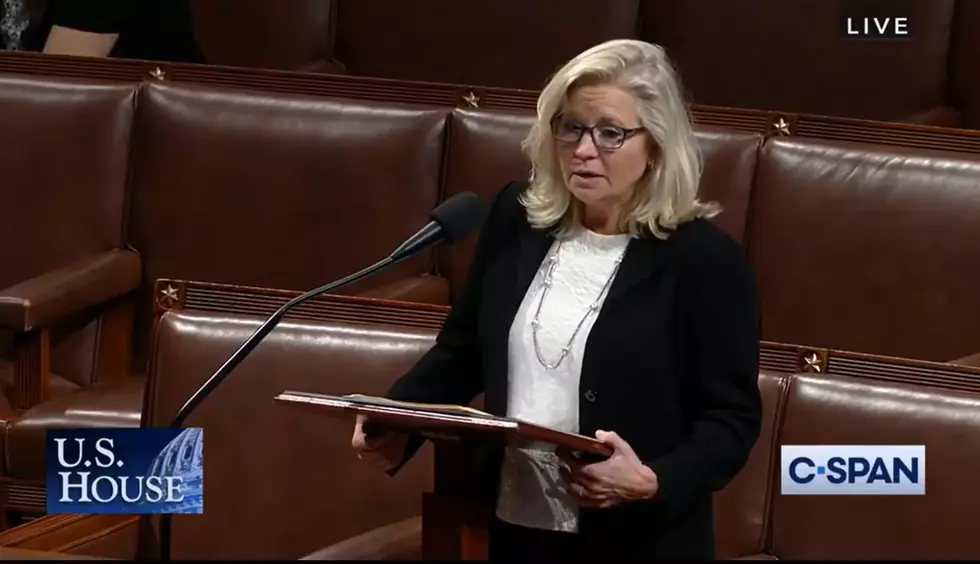
Cheney Introduces Bill Seeking to Make Telehealth Changes Due to COVID-19 Permanent
Wyoming Representative Liz Cheney put out a statement in support of a bill she introduced in June on telehealth services.

The bill, which recently passed the House 416-12, would make permanent changes made to telehealth during the pandemic, such as allowing Medicaid to pay for telehealth services in rural communities.
While the current telehealth provisions are set to expire five months after the pandemic health emergency ends, it is unclear when that will happen, as the emergency was renewed for the 10th time on July 15.
The bill currently has nine co-sponsors, eight Democrats, and one Republican.
Speaking on the House floor in favor of the bill, Cheney said in part:
"All of us, I think, around the country, especially in rural America, saw the impact of COVID on the ability of our constituents to get the treatment that they need," Cheney said. "We first began working on legislation to expand telehealth capabilities more than two years ago, just following the onset of the pandemic. In Wyoming, we have long known how important it is for citizens to be able to take advantage of the technology that exists today...Specifically, the legislation removes geographic requirements, and it expands originating sites so that Medicare beneficiaries can receive care at any site, can expand the practitioners who are able to furnish telehealth services, and it also provides for audio-only telehealth. I am very pleased that this extension through 2024 was fully paid for using the Medicare Improvement Fund, and the CBO has shown that it will not increase direct spending...I am very proud that this bill has the support of the Wyoming Hospital Association, in addition to the American Medical Association and a number of other crucial groups whose mission is to serve patients and to provide quality care. While I know we in this body will continue to have legitimate and important ongoing policy debates about health care, there is, as I said, broad bipartisan agreement for expanding access so that all of our citizens can receive high-quality care."
In response to the ongoing COVID-19 public health emergency, Congress authorized bipartisan legislation expanding telehealth services for Medicare beneficiaries in March of 2020.
Over the past two years, telehealth has increased access to services in rural and underserved communities and ensured continuity of care during challenging and unique circumstances.
The bill would continue telehealth policies under Medicare that were initially authorized at the start of the COVID-19 pandemic through 2024.
Specifically, the bill would:
- Removing geographic restrictions and expanding originating sites.
- Expanded telehealth services are offered by qualified physicians and practitioners.
- Medicare reimbursement of telehealth services provided by physicians and practitioners working for Federally Qualified Health Centers (FQHCs) and Rural Health Centers (RHCs).
- Let mental health services be furnished through telehealth for up to six months without an in-person meeting.
- Allow audio-only telehealth services for seniors and rural patients.
- Expanded access to telehealth services for recertification of hospice care eligibility during an emergency period.
In June 2020, Cheney introduced similar legislation to permanently expand telehealth services, however, after being referred to the Committee on Energy and Commerce, it was never brought to the floor for a vote.
That bill had five Republican cosponsors, including Greg Gianforte, the current governor of Montana.
Wyoming A to Z
More From K2 Radio








